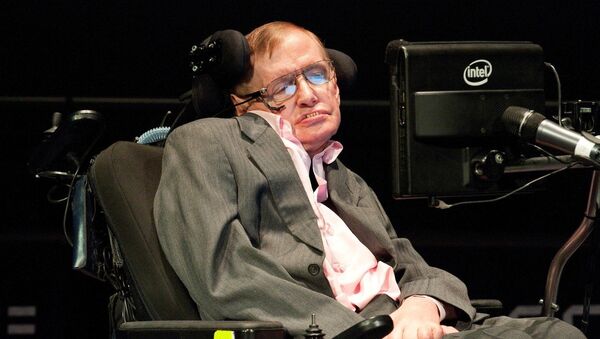MOSCOW, December 3 (Sputnik) — Stephen Hawking, a renowned theoretical physicist, has cautioned that artificial intelligence could lead humanity to its end, since humans cannot compete with AI, BBC reports.
"The development of full artificial intelligence could spell the end of the human race," he told BBC. "It would take off on its own, and re-design itself at an ever increasing rate. … Humans, who are limited by slow biological evolution, couldn't compete, and would be superseded," the Cambridge University professor explained.
Development of artificial intelligence offers enormous benefits, Hawking stated in an article published by the Independent in May. "[E]verything that civilisation has to offer is a product of human intelligence; we cannot predict what we might achieve when this intelligence is magnified by the tools that AI may provide, but the eradication of war, disease, and poverty would be high on anyone's list," Hawking stated in an opinion piece.
"Success in creating AI would be the biggest event in human history. Unfortunately, it might also be the last, unless we learn how to avoid the risks. … All of us should ask ourselves what we can do now to improve the chances of reaping the benefits and avoiding the risks," Hawking stressed, as quoted by the newspaper.
Hawking also said he would not want to change his computer generated voice. "It has become my trademark, and I wouldn't change it for a more natural voice with a British accent," he told BBC. "I'm told that children who need a computer voice, want one like mine," he added.
Stephen Hawking suffers from the motor neuron disease amyotrophic lateral sclerosis (ALS), also known as Lou Gehrig's Disease. The physicist relies on artificial intelligence to communicate since he is almost entirely paralyzed. To communicate Hawking uses software developed by Intel, which "uses predictive text based on an analysis of the English language and his own speech patterns," according to Washington Post.


